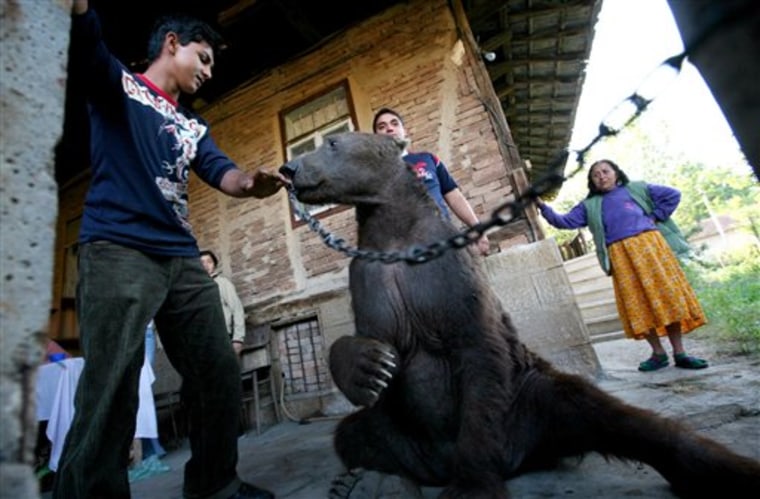After a lifetime of brutal treatment, including walking on burning embers, Bulgaria's last three dancing bears will get to rest their paws at a mountain sanctuary, in an apparent end to the centuries-old performance tradition in the Balkans.
Activists on Friday bought the freedom of Mima, 8, Misho, 19, and Svetla, 17.
Bulgaria is believed to have been the last country in the Balkans where dancing bears still performed, even though the practice was outlawed in 1993, when there were 20 to 30 such bears in the country.
The three bears will join another 20 brown bears on Mount Rila at a 30-acre sanctuary for former dancing bears 110 miles south of Sofia.
"Our aim is to make their life more bearable in their remaining years," Ioana Tomescu of the Austria-based Four Paws Foundation, which created the sanctuary, told The Associated Press.
Throughout the Balkans, families — mostly among the Gypsy or Roma community — have long earned a living through performing bears. But the techniques to train them led the practice to be banned, and animal rights activists have moved to find the bears new homes.
The bears are captured while still young. Their nose or lips are pierced, and a metal ring attached to a chain is inserted; the pain ensures instant submission.
The cubs are forced to walk on burning embers or a hot sheet of metal, and hop from one hind leg to the other in order to escape the burning, while their trainer beats a drum. The process is repeated until the bear learns to connect the drum to the pain.
Because dancing bears are illegal, authorities could simply have taken Mima, Misho and Svetla away from their owners in the eastern village of Getsovo.
Instead, the Four Paws Foundation decided to pay for their freedom by giving their owners small grants to set up new businesses. It did not reveal how much was paid. In return, the owners signed declarations pledging never to take up the bear dancing business again.
